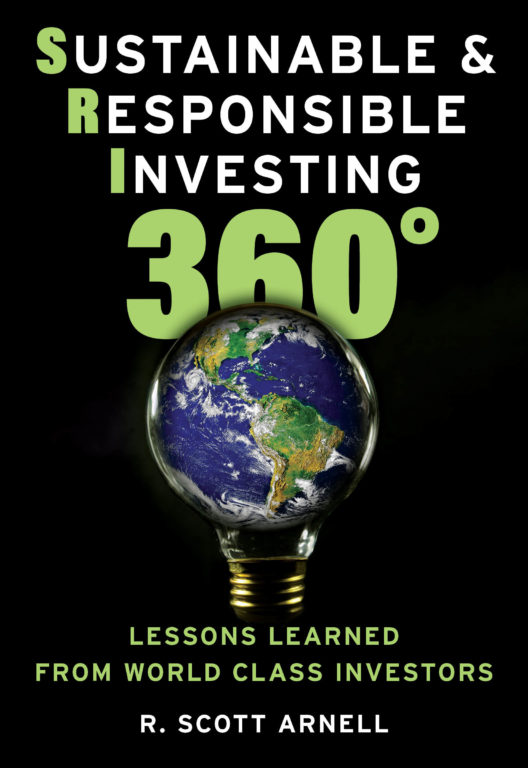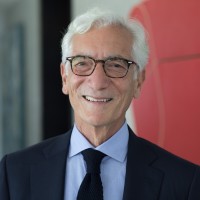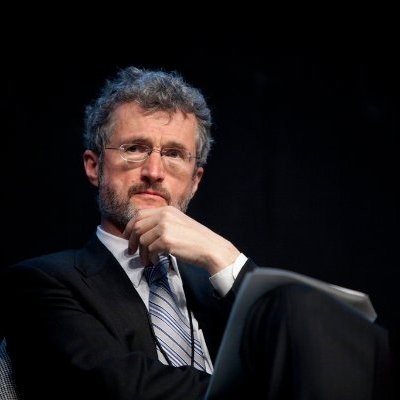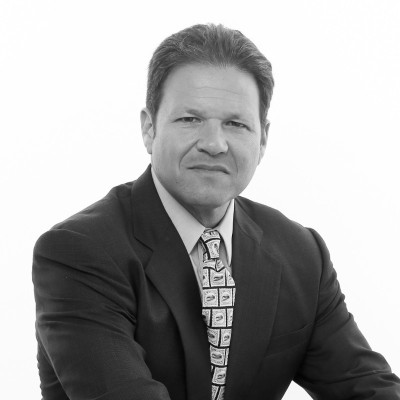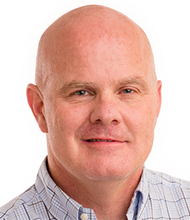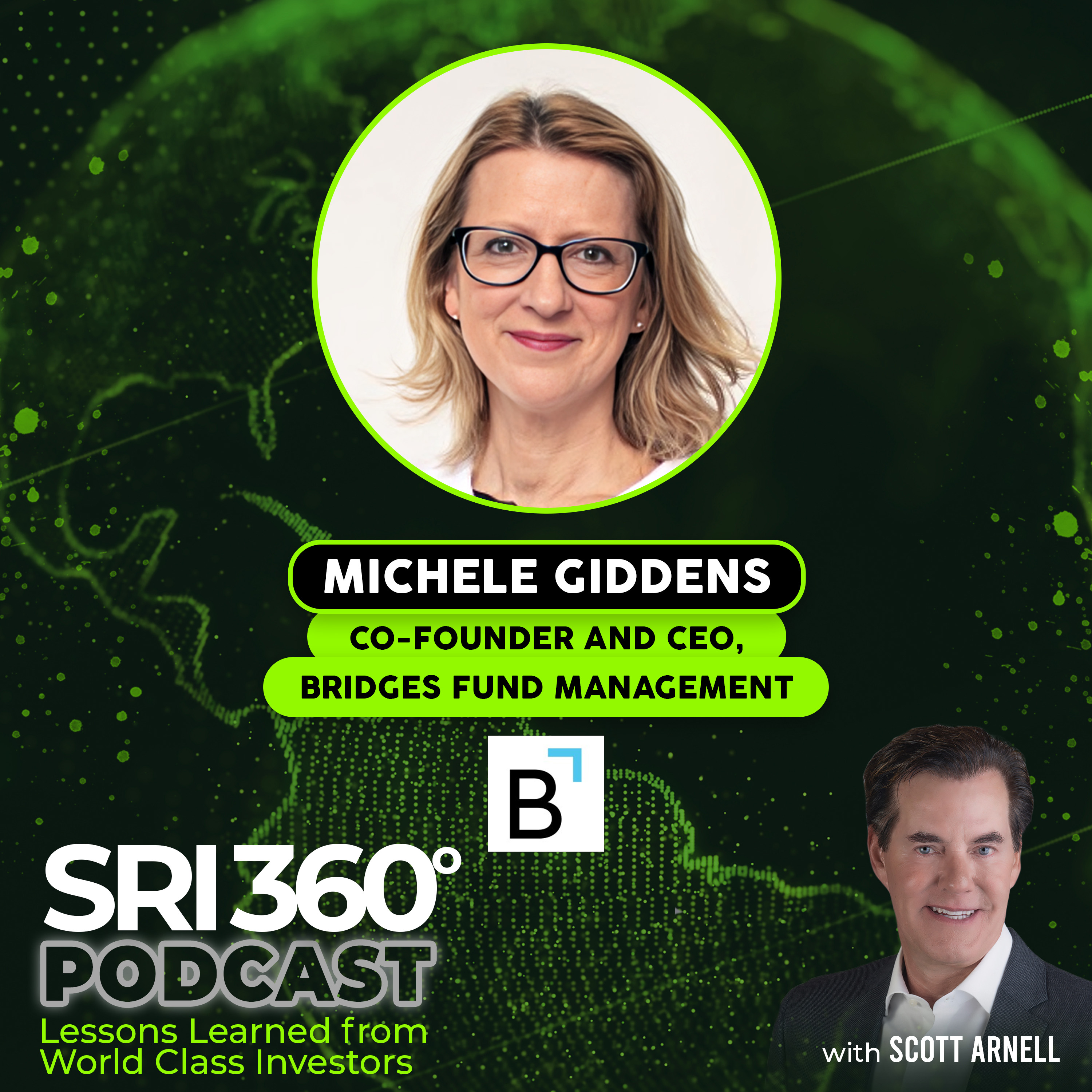
“For me, the goal of Bridges has always been to be the specialist in sustainable and impact investing – to keep pushing forward, to look at what the new things are, the new problems that can be solved through investment, and to continue to pioneer in this space. ”
— Michele Giddens
My guest today is Michele Giddens, Co-Founder and CEO of Bridges Fund Management — one of the early architects of impact investing, before the term was even coined.
Bridges now has over £2 billion in AUM invested in private equity and property, but back in 2002, it began with little more than a blank sheet of paper and a conviction that capital could — and should — be used to address some of society’s biggest challenges.
Michele and her co-founders, Sir Ronald Cohen and Philip Newborough, believed social and environmental impact didn’t have to come at the expense of returns. That belief has held firm for over two decades — and continues to shape how Bridges invests today.
That belief didn’t come out of nowhere.
Michele grew up in Leicester, the child of left-wing, atheist parents who lived their values in everyday ways — not just in what they believed, but in how they treated people. Her father, a sociology professor, “always very keen to talk to the college porter, or the waiter in the restaurant,” taught her early on that everyone should have the opportunity to reach their full potential. That idea became, as she describes it, “a golden thread” running through her career.
She spent most of her childhood in North London and describes herself as chronically shy — what would now be called social anxiety. That discomfort pushed her toward performance. Acting gave her a script and a structure. It became a surprising strength later on, when she found herself speaking from podiums across the finance world.
At Oxford, she arrived at Balliol just five years after it began admitting women — and stepped into a world that felt entirely foreign. Dining halls lined with oil portraits, bow ties everywhere, and young men next door singing Latin songs in tuxedos.
Coming from a state school, she had never imagined anything like it. That first night left a mark: a sharp awareness of difference, but also a glimpse into the kinds of rooms she would later walk into again and again. Over time, she says, there was a certain pleasure in being the only woman in the room. It didn’t feel like exclusion. More like preparation.
After graduating, she skipped the corporate path and headed to Mexico City to teach English — the start of what became 15 years living and working abroad. From Hungary to Poland, Bangladesh to Mongolia, she followed the same instinct: a need to be close to where impact actually happens. Not just watching change — shaping it.
That drive brought her back to the UK in 2000 to advise the Treasury’s Social Investment Task Force, chaired by Sir Ronald Cohen. One of its key recommendations was to launch funds focused on underserved parts of the UK. Michele helped shape that idea — and stayed to build the first one.
She and Ronald started with a blank sheet of paper and designed something new: a firm that would be “very commercial and serious about financial returns,” and equally focused on impact. A space in the middle — “between simply profit maximizing at any risk level and giving away all your money.”
Their first fund was £40 million, including £10 million in catalytic capital from the UK government, structured to take more risk and go in first. “One of the very best uses of taxpayer money,” she says — because it helped unlock over £2 billion in private sector investment since.
Today, Bridges operates across two verticals: building a more sustainable planet and a more inclusive economy. In property, that means co-living spaces, healthcare, and age-friendly housing. In private equity, it includes companies like AgilityEco, which helped 200,000 households reduce energy bills, and Talking Talent, which helps underrepresented employees rise through leadership.
To bring clarity to a fragmented field, Bridges developed the “Spectrum of Capital” — now widely used to map investment strategies between profit-maximization and pure philanthropy. It gave investors language, and confidence, to operate in the space between.
Michele is clear-eyed about what impact can and can’t do. Some challenges need capital that’s more patient, more risk-bearing, or even concessionary. That’s why Bridges has built nonprofit arms to reach the edges of what the market can’t serve.
But she’s equally convinced — and backed by two decades of results — that plenty of investments deliver both meaning and double-digit returns, if you design for it.
That’s been the aim from the start — not to trade one off against the other, but to hold both to a high standard. Twenty years on, that idea hasn’t softened.
What Michele and her team have built isn’t just a firm. It’s a bridge. And over twenty years in, it still holds.
Listen to the episode on Apple Podcasts, Spotify, Overcast, Podcast Addict, Pocket Casts, Castbox, YouTube Music, Amazon Music, or on your favorite podcast platform. You can watch the interview on YouTube here.
What was your favorite quote or lesson from this episode? Please let me know in the comments.
SCROLL BELOW FOR LINKS AND SHOW NOTES…
ADDITIONAL RESOURCES:
- Connect with Michele: LinkedIn
- Bridges Fund Management on Twitter/X, LinkedIn, YouTube
- Bridges Fund Management website
- The Bridges Spectrum of Capital – download here
SHOW NOTES:
[00:00] Introduction
[04:23] Formative childhood in the UK with brief North American exposure
[08:20] Turning social anxiety into a stage presence superpower
[10:24] Balliol College at Oxford prepared Michele for male-dominated finance rooms
[13:56] Pivoting from management consulting rejection to charity work
[16:46] Studying for an MBA at Georgetown to merge business skills with purpose
[18:54] Working in post-communist Eastern Europe and the World Bank
[22:23] Getting closer to impact through ShoreBank and microfinance
[28:20] Advising UK Treasury on unlocking capital for social change
[30:02] Co-founding Bridges Fund Management
[36:06] Bridges Fund Management today
[39:15] The “Spectrum of Capital” model
[42:01] Bridges’ 2 investment verticals: Inclusion and sustainability
[51:00] Bridges’ screening process for property investments
[59:03] How impact is measured at Bridges
[01:06:53] Hiring for values and the “Brighton Rock” test
[01:09:50] Bridges’ non-profit activities
[01:16:37] Current challenges and future direction of Bridges
[01:22:42] Rapid-fire questions
MORE MICHELE GIDDENS QUOTES FROM THE INTERVIEW:
“We raised a £40 million fund, with £10 million of that coming from government as catalytic capital – structured to take more risk by going in first and coming out last. That £10 million has been one of the very best uses of taxpayer money, because from it we’ve raised over £2 billion in private sector investment – and counting. ”
— Michele Giddens
“At Bridges, we believe building a more sustainable and inclusive economy isn’t just a moral or ecological imperative – it’s also a unique opportunity to create lasting economic and social value. ”
— Michele Giddens



